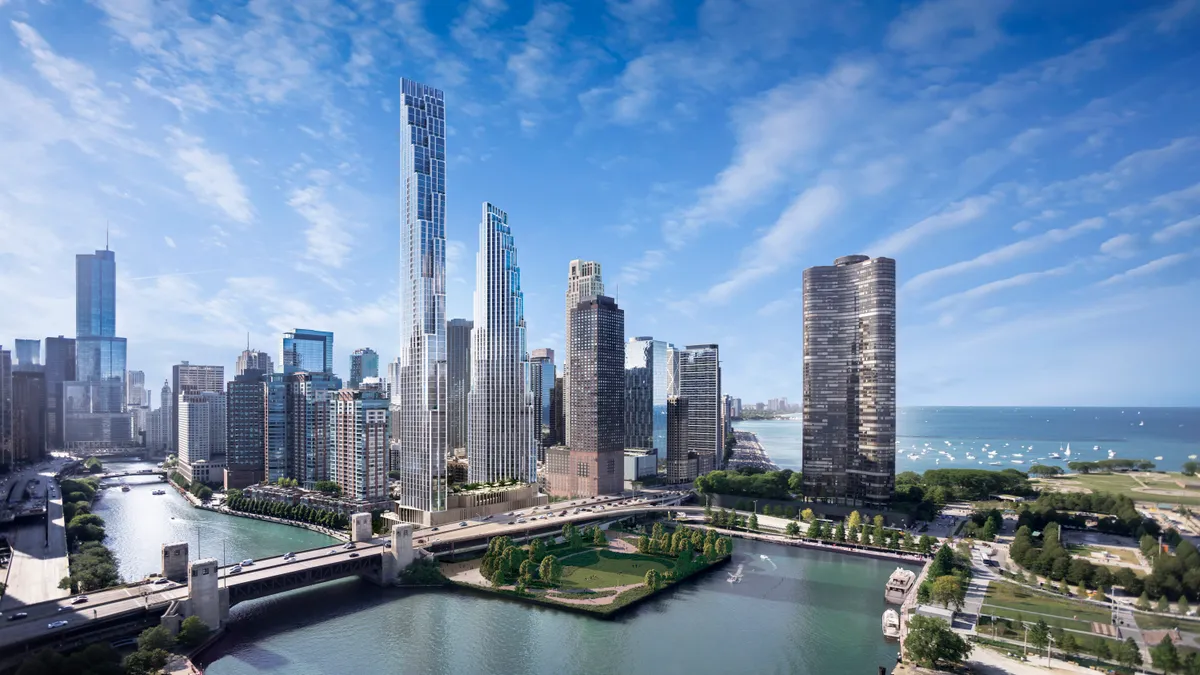Dive Brief:
- Chicago Alderman Brendan Reilly reportedly has rejected Related Midwest’s proposal to build a $1 billion dual-skyscraper project on the former waterfront site of the failed Chicago Spire, according to Dezeen.
- In an email to his constituents, The Architect’s Newspaper reported, Reilly, alderman for the city’s 42nd Ward, wrote that Related had not addressed major concerns local residents had about that project, which needs his approval and a rezoning to move forward. Among constituent requests were that Related remove the planned hotel and public esplanade components; reduce the size and height of the project’s podium; redesign the main entrance to reduce traffic congestion; increase use of an existing ramp system and below-grade parking to keep delivery, pick-up and drop-off traffic away from residential areas; and provide a security plan for an area that connects the Riverwalk to a proposed three-acre park, for which Related offered to contribute $10 million.
- According to details about the Skidmore Owings Merrill-designed project that Related released in May, the tallest of the two glass- and terra cotta-clad towers would reach up to 1,100 feet in height and feature 300 condominiums and 175 hotel rooms. The second building, at 850 feet, would offer 550 luxury apartments. Both structures would be connected by a four-story podium built with stone and masonry to cut the noise from traffic. In his email, Reilly said he would update constituents if Related chose to address the issues with the project.
Dive Insight:
Last year, Reilly also rejected Symmetry Development’s proposal for a 60-story mixed-use tower in the 42nd Ward. The high-density project would have included 30,000 square feet of retail, a 325-car parking garage, approximately 250 high-end condominiums and a 216-key hotel with an additional 120 timeshare units. Reilly said the project as designed would create too much traffic and suggested that Symmetry come up with a low-density plan instead. In September, Symmetry filed a permit to demolish 1800s-era row housing on the site, potentially setting up a battle with local preservationists. Any new project would still need Reilly’s approval.
Chicago and other major metros are trying to strike a balance between growth and local concerns about traffic, stress on public services and the displacement of existing residents that can’t afford to rent or buy in luxury developments.
And public officials are not simply rubber-stamping these projects. For example, in Brooklyn, New York, last month, a community board denied a rezoning request that would have seen the demolition of a three-story building and a 40-story, 558-foot-tall mixed-use high-rise built in its place. The board voted down Slate Property Group’s plan because members said it did not include enough affordable housing and did not offer sufficient job opportunities.












